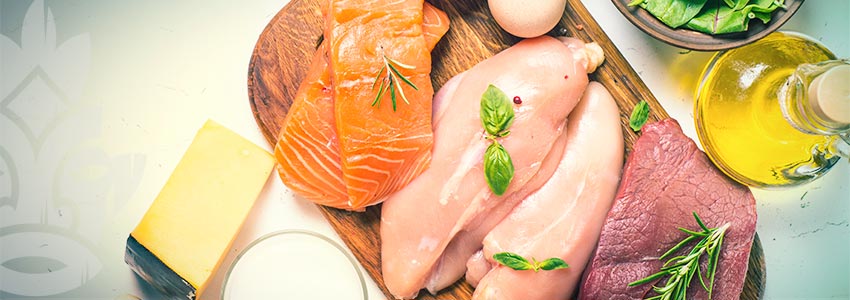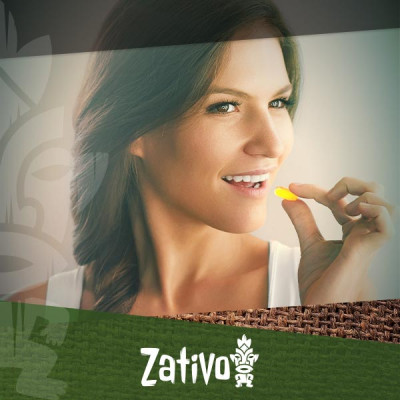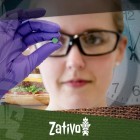Don't have an account?
Register NowYou have to add to cart at least 5 bottles or any program to make checkout.
- BlogWhat is L-tryptophan?
What is L-tryptophan?
Published: May 14th, 2020
Categories:
Other subjects
L-tryptophan plays several critical roles in the human body. We rely on the essential amino acid to build proteins and support proper organ function. The molecule also helps to form key nutrients and important neurotransmitters. As an essential amino acid, the body can't synthesise its own supply of L-tryptophan. Instead, we must ingest it from certain foods to meet the body’s demand.
HOW DOES L-TRYPTOPHAN WORK?
L-tryptophan serves as a critical building block of molecules required for proper brain and nervous system function. After digesting foods that contain the amino acid, the body converts L-tryptophan into 5-HTP (5-hydroxytryptophan). 5-HTP serves as a precursor to numerous key molecules, including the hormone and neurotransmitter serotonin.
Serotonin influences mood, social behaviour, appetite, digestion, sleep, memory, and even sexual desire. Low levels of serotonin in the brain are associated with a low mood.
The body also uses 5-HTP to produce melatonin. Secreted by the pineal gland, melatonin helps to regulate our sleep cycle, or circadian rhythm, and signals to the body when darkness arrives and it’s time to sleep. Additionally, 5-HTP also plays a key role in the synthesis of vitamin B3 (nicotinamide), which helps to produce serotonin, as well as the myelin sheaths that coat nerve fibres.
L-TRYPTOPHAN AS A MOOD ENHANCER

As the precursor of serotonin, L-tryptophan might help to boost the mood. Adequate levels of the feel-good chemical are associated with feelings of well-being and proper cognitive function.
L-tryptophan is able to access the brain, which the body then uses to construct its own supply of serotonin. Therefore, taking L-tryptophan might help to enhance the mood by kindling our own supply of the happy neurotransmitter. In instances where our serotonin supply falls low—such as after taking party drugs like MDMA that tax the serotonergic system—L-tryptophan might offer a cognitive lift.
L-TRYPTOPHAN AS A NATURAL APPETITE REDUCER

Eating foods high in L-tryptophan, or taking a supplement, might help to suppress hunger pangs. Of course, being healthy means eating the right amount each day, but sometimes we eat out of pure boredom as opposed to necessity. L-tryptophan might help to reduce cravings for carbs and excess calories as a whole.
L-TRYPTOPHAN AS A NOOTROPIC

Nootropics are supplements that help to boost cognition and mental stamina. Examples of natural nootropics include caffeine, creatine, L-theanine, and Ginkgo biloba. L-tryptophan appears to fit the bill as a nootropic molecule as well. Its ability to drive serotonin synthesis means it might help enhance cognition.
L-TRYPTOPHAN MAY IMPROVE EXERCISE PERFORMANCE

L-tryptophan might help you push yourself harder in the gym or when out on a run. The molecule influences the opioid system in the body, which might help athletes and casual gym-goers push through. Using L-tryptophan before a workout could also help athletes perform better for a longer period of time while experiencing a lower rate of perceived exertion.
WHICH FOODS ARE GOOD SOURCES OF L-TRYPTOPHAN?

L-tryptophan exists in relatively high quantities in many common foods. Check out the richest dietary sources below:
• Chicken
• Eggs
• Fish
• Pumpkin seeds
• Turkey
• Milk
• Cheese
IS IT SAFE TO TAKE L-TRYPTOPHAN? DOES IT HAVE ANY SIDE EFFECTS?
L-tryptophan can also be taken as a supplement. Taking the amino acid in this way is believed to be safe when consumed in normal quantities. Most people consume around 1 gram each day through their diet, but taking up to 5 grams as a supplement is thought to be safe.
Side effects of supplementing with L-tryptophan are quite rare, but people occasionally experience upset stomach and lightheadedness.





